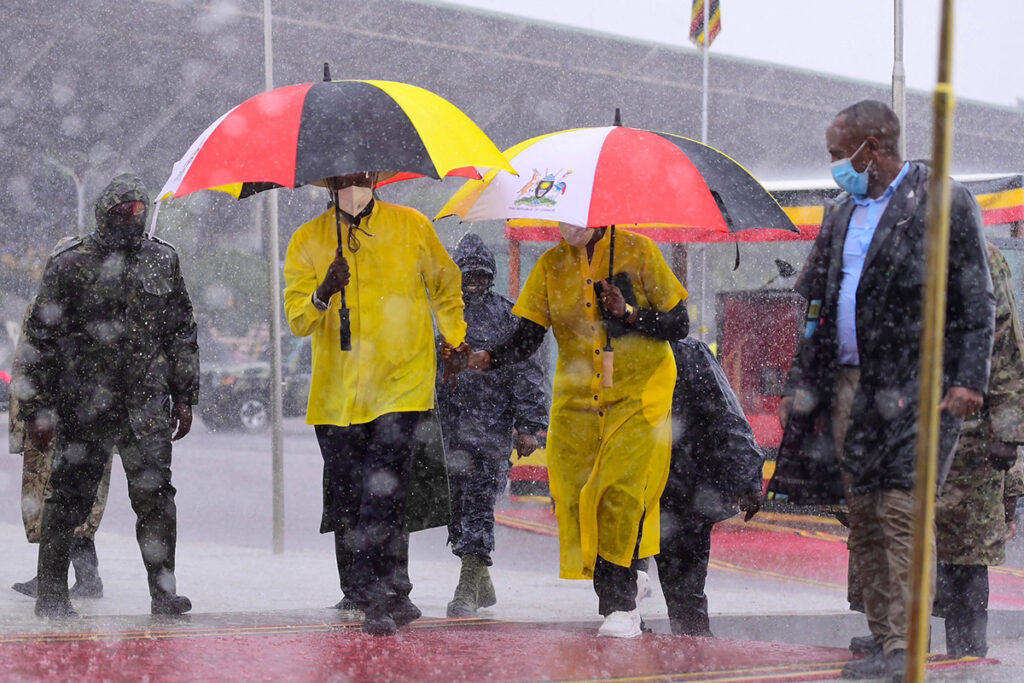President Yoweri Museveni has turned his anti-corruption campaign towards the education sector, vowing to address the embezzlement of public funds, especially capitation grants.
Speaking to thousands at Kololo Independence Grounds on Friday, Museveni announced his intention to obtain a corruption report from the First Lady, Mrs Janet Museveni, who serves as the Minister of Education and Sports.
“It appears there’s significant theft within the education system, with numerous ‘ghost’ entities. Eliminating corruption here could enable us to provide free education for all children,” Museveni stated.
He urged National Resistance Movement (NRM) supporters to back his efforts to abolish school fees, emphasizing the need to combat corruption, particularly the issues of ghost teachers and the misappropriation of capitation grants.
Museveni highlighted the problem of capitation grants being siphoned off by officials in the education system and the Ministry of Finance.
“If we can close these loopholes, we can offer free education in government schools,” he added.
Capitation Grants Overview
This fiscal year, Uganda’s education sector received UGX 5.85 trillion out of the UGX 72 trillion national budget, marking an 8% share and a 5.2% increase from last year’s UGX 5.56 trillion.
The education ministry reported 12,512 Universal Primary Education (UPE) schools serving 7,953,933 students.
The annual unit costs are UGX 20,000 per regular student, UGX 22,000 for special needs students, and UGX 1.35 million per school, projecting a total of UGX 176 billion for this year.
Additionally, the Universal Secondary Education (USE) program includes 1,268 secondary schools with 781,990 students.
The annual USE unit costs are UGX 175,000 per regular student, UGX 192,500 for special needs students, and UGX 270,000 for universal post-O’level education and training, totaling UGX 145 billion needed for this year.
District Officials Warned
Museveni lamented the exclusion of local councils from the anti-corruption fight, noting that district-level corruption is perpetuated by appointing officers like the permanent secretary, chief administrative officer (CAO), town clerks, and gombolola chiefs.
“These officials, responsible for money, personnel, jobs, and procurement, have let us down. With the support of freedom fighters, patriots, and the public, we will crush corruption,” he asserted.
He also tasked the Inspector General of Government (IGG) with investigating bribery in Kagadi district, where a delegation reported that residents must bribe district officials to secure jobs.
“Such practices cannot continue unchecked. The IGG must follow up and provide a report. We must use the local council system to protect ourselves,” Museveni said.
Opposition and Foreign Influence
Museveni cautioned opposition members against seeking foreign embassy support to destabilize Uganda.
Celebrating Museveni’s Legacy
The Friday event, organized by the NRM Secretariat, celebrated Museveni’s achievements. He recounted the history of the NRM from its origins in the University Students’ African Revolutionary Front (USARF) and Front for National Salvation (FRONASA), emphasizing the NRM’s focus on the masses over the elite. “The NRM has always prioritized the masses, unlike the elitist approaches of the past,” he noted.
A Rainy Reception
Amid a downpour, Museveni and the First Lady were welcomed by Vice-President Jessica Alupo and Prime Minister Robinah Nabbanja.
Some officials, including NRM vice-chairman Haji Moses Kigongo and party secretary general Richard Todwong, missed the initial reception due to seeking shelter from the rain.
First Lady’s Remarks
Mrs. Janet Museveni praised her husband’s leadership, attributing Uganda’s transformation to his steadfast faith and dedication.
As Minister of Education and Sports, she acknowledged the ongoing challenges in achieving universal education but expressed optimism that the government’s efforts would eventually succeed in eradicating ignorance through education.
“We continue to believe that sooner rather than later, we will achieve the objectives of universal education,” she concluded.

